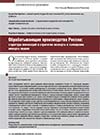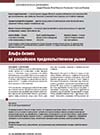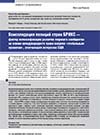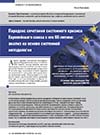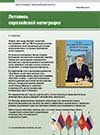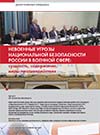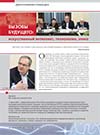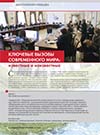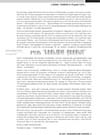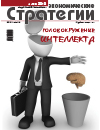Machining Production of Russia: Structure of Innovations and Export Strategy and Replacement of Import of Machines
DOI: 10.33917/es-6.164.2019.78-89
The purpose of the study is to assess the dynamics of the manufacturing industries in Russia. According to the “structural formula”, the contribution of innovations in various types of activities to the overall dynamics of innovations in manufacturing industries is assessed, which makes it possible to identify the dominant innovations in economic sectors. This approach is useful in order to differentiate the methods of industrial (sectoral) policy, including national projects as an institutional tool for managing the development of the Russian economy, since it identifies those areas that require special incentives for the innovation process. The structure of innovation is heterogeneous, the contribution by different types of activity varies significantly, which indicates the instability of the process of innovative development. Two strategies are considered for the functioning of processing industries: the export of machinery and the substitution of machinery imports. It is shown that these strategies can not be reduced to one another, except for special cases and suggest different possibilities. The parameter of structural independence for the Russian engineering industry has steadily decreased and its dynamics has been stabilized at low values, as shown by the method of phase portraits of the change in this indicator. This suggests that the domestic economy and engineering remain highly dependent on imports of machinery, equipment and technology, and leads to the conclusion that the import substitution policy is not, firstly, sufficient, and secondly, structural internal changes are required in the economy, so that import substitution and the development of export manufacturing industries give a positive systemic result. On the basis of quantitative assessments, a fundamental conclusion was obtained that the import substitution policy itself will certainly not have a high performance (locally limited effect), which it could potentially have when the internal flow of resources changes towards the processing sectors



